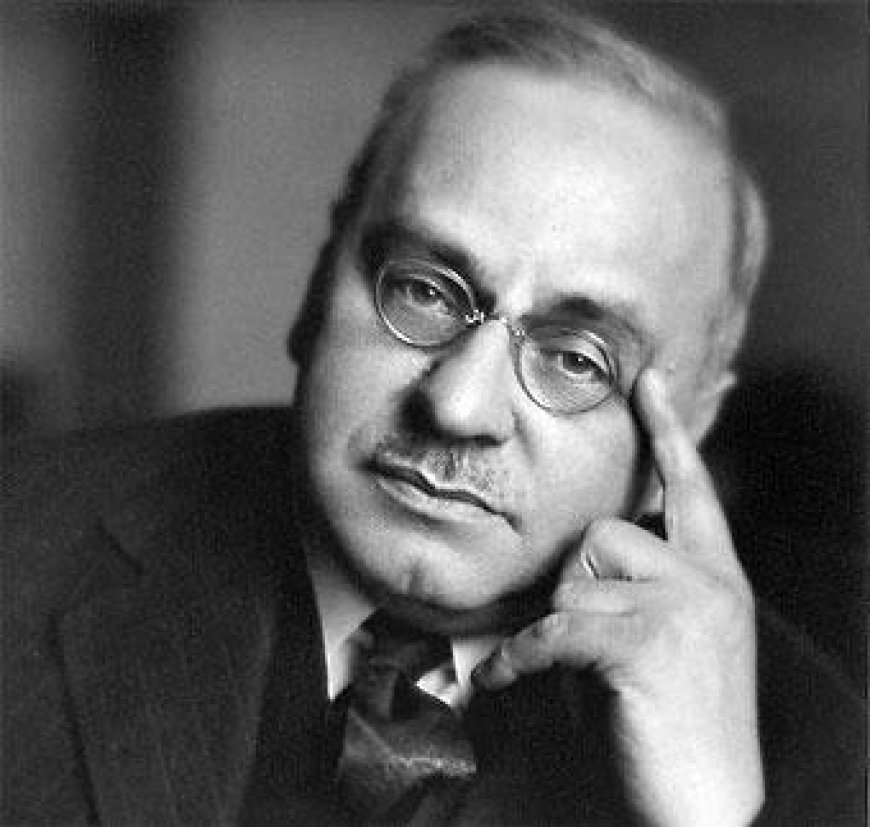ALFRED ADLER
Adler, the representative of the individual psychology school, was born on February 7, 1870 in a village in Vienna. Alfred has four brothers and two sisters, his mother is a housewife and his father is a merchant. Alfred, the second child of the family, is a sick and weak child.

Adler, the representative of the individual psychology school, was born on February 7, 1870 in a village in Vienna. Alfred has four brothers and two sisters, his mother is a housewife and his father is a merchant. Alfred, the second child of the family, is a sick and weak child. Healthy and strong, Alfred's older brother Sigmund has always been a strong competitor for Adler. Alfred's febrile illness when he was a child and the effect it had on his younger brother, who died next to him, were very influential in Adler's decision to become a doctor when he was a child. Alfred's childhood was spent with illnesses, his jealousy towards his older brother Sigmund, his mother's loss of interest in Alfred, especially after Alfred's brother was born, and his exposure to various difficulties in school life, especially when he had to cope with feelings of inferiority. Later, he was told by his teacher that he had to be taken from school due to the decline in his lessons, but Alfred's father wanted his son to study and did not listen to his teacher, on the contrary, he encouraged his son to continue school. Soon after, Alfred was not only very successful, but also did not experience such a failure again during his academic life, besides being first in his class. Interested in economics, politics and sociology, Alfred entered the University of Vienna after graduating and received his medical degree. Adler, who first specialized in eye diseases and then internal diseases, later realized his interest in psychiatry and allowed him to advance in this field.
Another issue that we will discuss in this article is the relationship between Adler and Freud.
Their relationship began when Freud invited Adler and three other doctors to a discussion group. The group, which came together on the famous Wednesdays and discussed the subject of psychoanalysis, later turned into an association. Adler, on the other hand, joined this group thinking that he could discuss different points of view. He never saw Freud as a mentor. He thought that he would also contribute to psychoanalysis and that his ideas would be accepted by Freud. Adler was appointed as the head of the association in 1910, but later on, the differences of opinion between Freud and Adler began to appear and increased over time. Finally, at a meeting, Adler and Freud realized that their views were very different from each other. Later, Adler resigned from his presidency and left the association with nine members who left with him, and they founded the "Free Psychoanalysis Association". The reason they thought of this name was to prevent Freud from owning psychoanalysis alone, but later Adler chose a name that was more in line with his own views and named it "Individual Psychology".
Adler and Freud's relationship did not end only because of differences of opinion. In fact, it is clear that they are not suitable for each other in terms of their characters. In short, they don't actually like each other. So much so that when Adler passed away, he used very harsh words about Freud and openly expressed how much he disliked Freud.
For Adler, the years after leaving the association were very productive and the "Individual Psychology" association he founded also grew rapidly.
Adler married Raissa Epstein, an independent and freedom-loving woman. Like his wife, Adler is also a feminist and socialist. Raissa and Adler had four children, two of whom were psychiatrists and one chose to become an actress, and the other died while a political prisoner in the Soviet Union.
Adler, a generally healthy person (except in childhood), had a lot of concerns about the fate of his daughter who disappeared in Moscow and started to suffer from chest pains. Adler's theory continues to be popularized by a wide variety of institutions and publications today.
What's Your Reaction?

















































































